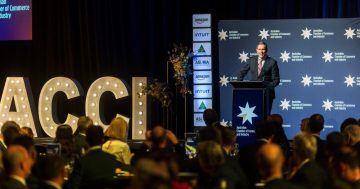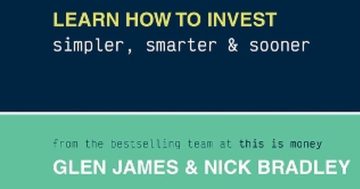Rod Myer* says investing your superannuation according to your ethical values can be harder than you might think.

Photo: Singkham
Did you start your working life focusing on just getting by and aiming your career in the direction you wanted, but now your ethics and political passions are taking over?
Then it could be time to review your approach to superannuation.
Many people on first joining the workforce don’t make a superannuation choice.
That means they go into a default fund chosen by their employer, which invests their money in a balanced option.
But if you are increasingly concerned about climate change, animal rights or sustainability, and you want your investments to comply with your values, then it’s time to start looking at where your money is.
Aussies are ethical
Simon O’Connor, CEO of the Responsible Investing Association (RIA), said “values investing” is increasingly important for Australians.
“Four out of five Australians would consider switching their fund if they considered it clashed with their values,” Mr O’Connor said.
RIA research has found that $866 billion, or half the professionally managed investments they measured, was invested in responsible investing categories.
It pays to invest ethically as “in the last few years, the performance of responsible funds is as good or better than mainstream funds”, Mr O’Connor said.
He said they make better investments as they have a lower cost of capital, fewer consumer complaints and fewer regulatory issues.
To understand where your money is invested, check first on your fund’s website to see that you are in the correct asset allocation: balanced, growth, or conservative.
Once you are comfortable with that, let your passions run.
“Then it’s up to you and your values,” said Pablo Brait, campaigner with researcher Market Forces.
“You may not want to invest in fossil fuels, military weapons or your main concern could be animal welfare.”
Not easy to find the truth
So, then you need to check the companies your fund invests in to see if they align with your values.
That, unfortunately, can be easier said than done.
“A lot of funds only disclose the top 20 investment holdings, which means you can’t get the full picture,” Mr Brait said.
Market Forces has done a lot of work finding which super funds invest in companies aligned with the Paris Climate Accord, which looks to hold global temperatures at 1.5ºC above pre-industrial levels.
Its chart shows that some significant funds, like AustralianSuper, Catholic Super, Commonwealth Super and various State Government funds fit the bill.
However, some other funds don’t disclose enough detail on their investments to determine whether they pass muster on climate change.
Finding funds that target animal welfare can be even more difficult, because only a few funds specifically target the sector.
Animal rights
There are specific funds that support animal rights, but they are a small part of the market.
They include Australian Ethical, which has $2.8 billion invested in both super and general investments.
“Our Charter screens out lots of companies, directing investments to positive impacts or those that don’t do unnecessary harm,” Research Chief with Australian Ethical, Stuart Palmer said.
Cruelty Free Super is a relative newcomer with about $50 million invested and a focus on animal welfare.
The same owners run Future Super, which has $400 million under management and focuses on cutting carbon emissions, avoids fossil fuel investments and claims to “invest 20 per cent of your super in renewables”.
Cruelty Free won’t invest in live exports, animal cruelty or intensive agriculture, along with a range of environmental and social-harm activities.
Managing Director, Kirstin Hunter said Cruelty Free Super returned 8.5 per cent last year, while Future Super returned 9.5 per cent.
The funds are privately owned, founded by former GetUp! director Simon Sheikh and business partner Adam Verwey.
However, to date, all profits have been ploughed back into the business.
AustralianSuper has a significant commitment to responsible investing with two funds totalling $3.8 billion in assets, along with 54,000 members.
* Rod Myer is a Melbourne journalist and writer and Editor of Your Super. He tweets at @RodMyer1.
This article first appeared at thenewdaily.com.au.











